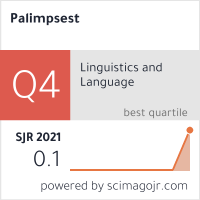A COMPARATIVE ANALYSIS ON APOLOGY SPEECH ACTS IN AMERICAN ENGLISH AND MACEDONIAN
DOI:
https://doi.org/10.46763/PALIM21612037kAbstract
The subject of analysis in this paper is the speech act of apology. The comparative analysis was conducted in relation to the form of the speech act and the strategies used to express it. The analysed data were obtained through an online discourse completion task among American and Macedonian university students. The DCT includes three situations that differ in accordance to the social distance and the social status of the participants, and the severity of the offence. The aim of the research is to define the pragmatic structure of apologies, by determining the possible similarities and differences in both languages. Herein, speakers in both languages can avoid future miscommunication and become aware of different communication styles and cultural features of the languages.
Keywords: speech acts; apologies; American English; Macedonian.


